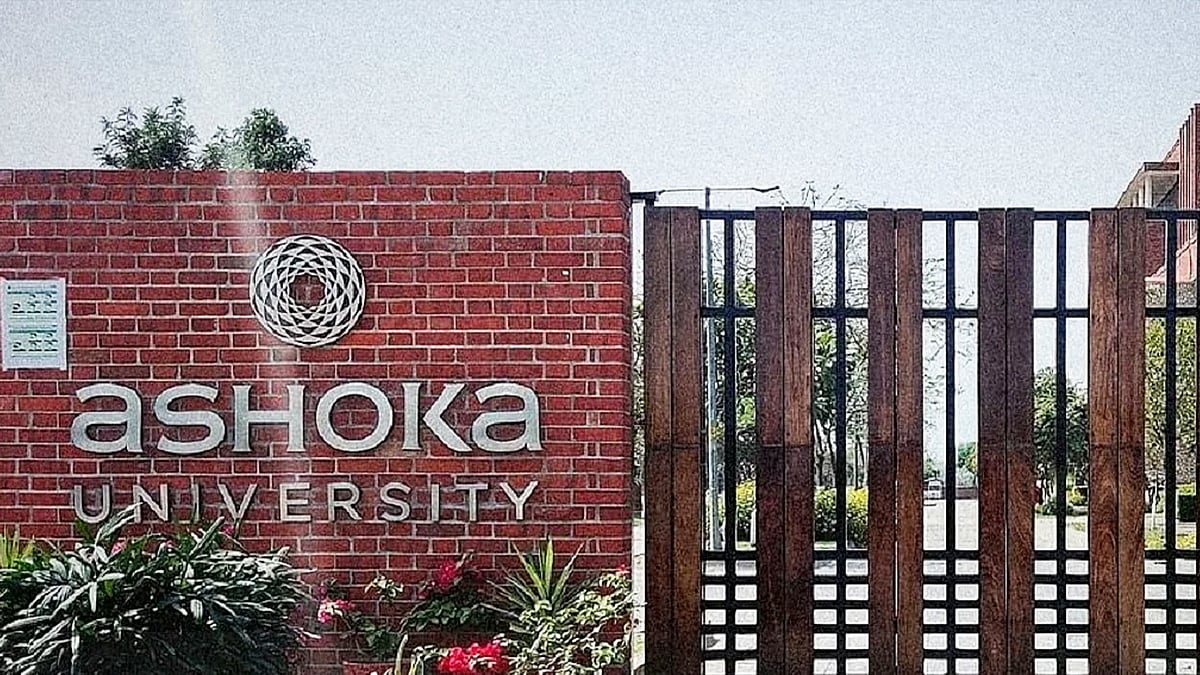An ‘absolutely apolitical’ space: Why Jindal University suspended two students this week
They were accused of putting up posters and making ‘derogatory, provocative statements on Ram Mandir’.
The other two students were sent notices for putting up the posters.
The next morning, each students responded to their showcause notice saying that they had “genuinely aimed to democratically discuss our concerns with whichever students showing up at the discussion and hear their voices and form an opinion there.”
Kaur told Newslaundry her response mentioned the threats she had been receiving and “appealed to the university to take cognizance of the threats”.
“I hold this university in great esteem and my actions were based on a wish to create a vibrant space for discussion, democracy, and a space for students to take a stance,” she wrote. “It was the members of Abhinav Bharat who released tweets, and in my belief, engineered news that maligns both us and this university.”
At around 10.30 am on February 10, all four of them received an email notifying them of a hearing scheduled to take place at 11.45 am – just an hour later. Kaur and Nair told Newslaundry they were not on campus at such short notice. Newslaundry reviewed all these emails.
The other two students attended the hearing in front of a university student disciplinary committee. It consists of members from the student council, officials from the chief proctor’s office, and administrators. Both the students – who also did not feature in any videos – were not suspended.
Nair and Kaur received emails saying they were suspended. The emails also pointed out that they did not attend their hearings.
In the suspension order, the university said the students did not seek permission before carrying out the public discussion, nor did they get the poster vetted from the administration.
The order further said that “derogatory and provocative statements were made” during the event, “which are reasonably capable of hurting the religious sentiments of various JGU stakeholders, who have an equal right to not align with the beliefs and opinions being perpetrated as part of the advertised event.” The order also noted that the students also posted the videos shot at the event, which “clearly demonstrates a deliberate intent on your part to attract widespread viewership.”
The order also noted that the comments of the students “with the intention of outraging the institution of Ram Mandir and ridiculing the ceremony of the Pran Prathistha” could be charged as contempt of court of the Supreme Court,” and “by calling for the destruction of temples, including the Ram Mandir, directly goes against the decision of the Supreme Court.”
It should be noted RSL did not apply for permission to host the event, but its members told Newslaundry that isn’t the norm for small discussions attended by only a handful of students.
Further prohibitions
Nair and Kaur told Newslaundry they refused to leave campus after being notified about their suspensions. Subsequently, university security physically forced them out, videos of which were circulated online.
The chief proctor then emailed all students “in the light of the recent events”. He reminded them of the distinction between being politically aware and “exhibiting your beliefs in any manner which is detrimental to the beliefs of others is absolutely prohibited”. He said the administration might “celebrate the right to free speech and expression” but could not “turn a blind eye towards reasonable restrictions that must be upheld to ensure that the freedom of others is not violated”. He also described the university as “absolutely apolitical”.
The email said students are prohibited from associating the university with “any political organisation, from associating themselves with unofficial organisations seeking to do politics on the campus, and from publicly distributing posters that may be interpreted as disruptive”.
Following this email and in solidarity with the suspended students, around 90 students gathered on campus on the evening of February 15 with several demands such as lifting the ban on political groups and gatherings without prior approval, for the university’s security to undergo sensitisation training, being given a copy of the security’s standard operating procedure, a reevaluation of recent changes to the student conduct code, and definitions of the threshold for ‘fair hearing’ and ‘due notice’, among others.
The students also protested that, while removing Kaur and Nair from the premises, the university security allegedly “dragged” and “manhandled” two female students.
A student participating at the protest told Newslaundry the university must not “jeopardise a safe environment”. But another said Kaur and Nair’s actions were a “slippery slope”. At least five students told Newslaundry there was “growing censorship” at OP Jindal Global University.
The university does have a history. In November last year, it asked writer and professor Achin Vanaik to “express regret” over his remarks in a closed lecture on Palestine. In December, an FIR was filed against a professor for “outraging the modesty” of women students because she showed them dating profiles during a lecture on gender.
Reports like these take time and resources. Help us tell these stories and subscribe to Newslaundry today.
General elections are around the corner, and Newslaundry and The News Minute have ambitious plans together. Choose an election project you would like to support and power our journalism. Click here.
 Ashoka University row: As campus reopens, faculty tight-lipped, and a student body ‘in wait’
Ashoka University row: As campus reopens, faculty tight-lipped, and a student body ‘in wait’
